Category: Hospice
Article pertaining to Hospice to help the patient, caregivers, facility staff members, and hospice care team members prepare the patient for a “good death.”
Article pertaining to Hospice to help the patient, caregivers, facility staff members, and hospice care team members prepare the patient for a “good death.”

Caring for terminally ill patients in denial can be challenging. This article explores why understanding denial is crucial and offers strategies for compassionate care. Techniques like Naomi Feil's validation therapy and motivational interviewing are highlighted to support patients respectfully, maintaining their dignity and emotional well-being.

Entering hospice care often means a terminal prognosis, but does it always mean death? This article delves into the purpose of hospice, the criteria for entering hospice care, and whether recovery is possible. Understand the nuances and what families and patients expect during this critical time.

Discover the transformative impact of music on dementia patients in this comprehensive guide. From improving cognitive function to enhancing mood and social engagement, music therapy offers a non-pharmacological approach to dementia care. Explore the science, benefits, and practical applications of integrating music into treatment plans for dementia patients.
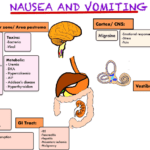
Nausea and vomiting are common and distressing symptoms in terminally ill patients. This comprehensive guide offers practical advice for caregivers and healthcare professionals on managing these symptoms, including pharmacological and non-pharmacological approaches, diet and lifestyle changes, and when to seek additional help.

Discover the advantages of low-dose dexamethasone in palliative care, including when to start, what to monitor, and guidelines for tapering off. Ensure optimal patient comfort and care.
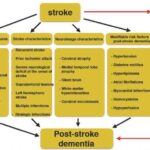
Stroke-induced dementia is a complex condition that affects both patients and their caregivers. In this guide, we’ll explore the impact of strokes on cognitive function, practical caregiving strategies, and considerations for maintaining quality of life.
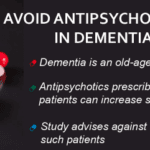
Unveiling the connection between antipsychotic drugs and dementia, this article delves into how these medications may elevate the risk or exacerbate symptoms. It provides a thorough examination of current research, expert opinions, and alternative approaches to managing dementia.

Unveiling the pivotal events that may fast-track dementia progression. This article delves into how fractures, ulcers, infections, dietary habits, and certain medications like statins play a role in accelerating the onset and severity of dementia symptoms.
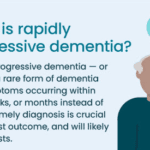
This article explores Rapidly Progressive Dementias, detailing risks, causes, and management strategies. It also provides essential information on hospice services and how they support patients and caregivers during challenging times.

Living with dementia brings unpredictable days. This guide delves into the factors that influence the good and bad, offering insights and practical tips for caregivers to navigate the ever-changing landscape of dementia care, ensuring every day counts.

Discover critical approaches for hospice nurses and staff to identify and address factors leading to unnecessary discharges. This guide offers practical steps to maintain quality end-of-life care for terminal patients, fostering a stable care environment.

Discover the critical role of trauma-informed care in hospice. This guide provides nurses and staff with the knowledge to support traumatized patients while educating caregivers and family members on providing empathetic end-of-life care.

Discover how acuity impacts hospice care. From assessment tools to real-world examples, this guide helps nurses and families navigate acuity levels.
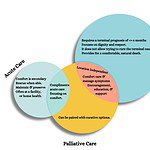
This article provides clear, expert responses to the most common questions about palliative care, offering guidance and insight for patients and families navigating this critical aspect of healthcare.

This detailed guide provides insights into the transition from palliative care to hospice, offering practical advice and emotional support to patients, caregivers, and family members during this critical phase.

Discover compassionate care techniques that address depression and anxiety in dementia without relying on antidepressants. This article delves into holistic approaches that enhance quality of life and promote mental well-being in dementia care.

Explore five essential strategies for maintaining hospice GIP compliance, including documentation best practices, staff preparedness, and emerging technological solutions. This guide helps hospice organizations navigate complex regulatory requirements while ensuring quality patient care.

This comprehensive guide provides essential insights into recognizing and addressing delirium in terminally ill individuals. It’s an invaluable resource for nurses, caregivers, and families, offering practical advice and empathetic support.

Explore how extended hospice care for dementia patients benefits families and saves Medicare money despite regulatory challenges around six-month prognosis rules.

Palliative wound care plays a crucial role in enhancing the quality of life for terminally ill patients receiving hospice care. As a new hospice nurse or caregiver, understanding wound management is essential. In this article, we’ll explore evidence-based practices, practical tips, and resources to empower you in providing compassionate wound care.

This guide helps families of terminally ill patients comprehend absolute vs. relative risk reduction. It’s a resource for making educated choices about medication continuation, tapering, or cessation in collaboration with healthcare professionals.

This guide offers practical advice for caregivers handling the challenges of undiagnosed dementia. Learn to create a supportive environment, recognize early signs, and navigate healthcare options.

This article delves into the intricate dynamics of hospice nurses’ relationships with patients, examining the benefits and challenges of emotional investment versus professional detachment.

Dive into the world of dementia diagnosis through MRI findings. This guide explores how different MRI indicators can hint at the type of dementia a patient might have. With real-life case studies, understand the importance of early detection and the future of MRI in dementia research.